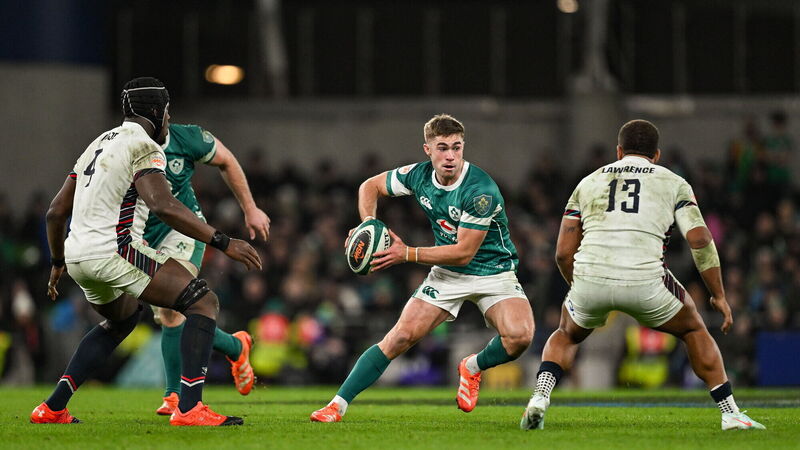How did Ireland get over the line? Fitness, clinical edge and bench press

Jack Crowley of Ireland in action against Maro Itoje and Ollie Lawrence of England. Pic: Brendan Moran/Sportsfile
Try from €1.50 / week
SUBSCRIBECONNECT WITH US TODAY
Be the first to know the latest news and updates
Newsletter
Latest news from the world of sport, along with the best in opinion from our outstanding team of sports writers. and reporters
Newsletter
Latest news from the world of sport, along with the best in opinion from our outstanding team of sports writers. and reporters
Thursday, February 12, 2026 - 10:00 PM
Thursday, February 12, 2026 - 10:00 PM
Thursday, February 12, 2026 - 9:00 PM

Select your favourite newsletters and get the best of Irish Examiner delivered to your inbox
© Examiner Echo Group Limited